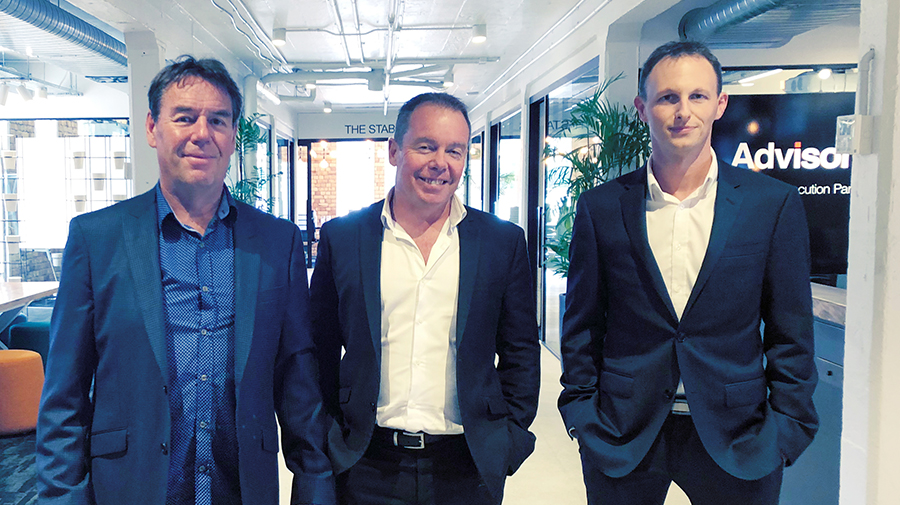What I Learnt By Firing Myself
Richard Conway looks back on the outcome of a decision he made four years ago to step back from the operational side of his business.
Richard Conway looks back on the outcome of a decision he made four years ago to step back from the operational side of his business.
In 2014 I wrote an article about stepping back from running the day-to-day aspects of my business. What I did not realise when I wrote the article was the reaction it would get.
The article clearly resonated with a lot of business owners as the debate and feedback I received was unprecedented.
This month I thought I would look back and reflect on both the good and the bad that have resulted from this difficult decision.
Although it was one of the hardest decisions of my life, it’s also been incredibly liberating and rewarding. Stepping out of general operations has given me the space and the time to focus on what I enjoy the most: strategy, growth and ideas.
What’s worked?
If I could go back and do everything again, I would do so without hesitation. Since I left general operations, our business has grown by more than 200 percent, incredible people have been developed, and we’ve moved into new regions.
Specifically, here are three key changes I’ve observed:
1. Space has been created for people to be their best
When I was holding the reins to Pure SEO tightly, there was limited space for others in the business to grow. At the end of the day, I would always be the one with whom the buck stopped. I would make the big decisions, and bear the brunt of the responsibility.
For those wanting to grow their leadership skills and truly reach their potential, the business only had a limited number of opportunities.
Now, with me taking a step back, people have had the opportunity to step up and grow. I’m in constant awe of the amazing people who have grown out of my business, simply because they’ve been given the chance to do so.
It’s easy to feel like you’re the only one capable of running your business, but the reality is, if you strive for any type of scale, that’s just not true.
It is crucial for you to step away and delegate.
2. Less reliance on me
There are now far fewer bottlenecks in our business. All that me being the sole decision maker meant was slow decisions. If I was travelling, sick, or on holiday, the business was in a state of transit. Now, with me out of the way, we’re far more nimble and able to make accurate decisions fast. From a competitive point of view, this is great – and from a continuity point of view, or if we ever looked to sell, the business is much healthier.
3. Time to work on culture
As you’ll see, culture is one of the most critical elements as a business scales. I’ve found that more and more, my chief responsibility is becoming culture. As one of the only senior members of our business who doesn’t have any direct operational responsibilities, I’m the one who can protect and champion culture when it’s most needed (although I need others to make this actually work).
Any business owner will know that it’s easy to prioritise operations over culture, simply because it’s a ‘squeakier wheel’.
Removing myself from operations enabled me to see culture for what it is – our key competitive advantage, and something to be protected at all costs.
What’s been challenging?
As with any big change, stepping out of my own business has been tough. If you’re thinking of doing the same, here are three areas to watch out for:
1. Clearly define roles
If I could go back and do everything again, the first thing I’d change would be to more clearly define exactly what I needed from the people around me. Having left quite a bit of ambiguity around roles and responsibilities, I created friction between team members whose roles overlapped. This was quite a big mistake which ultimately cost me a valuable team member.
2. Communication never gets easier
Perhaps this is more a reflection on size, rather than involvement in operations, but there is something to note about the challenges in communicating across a decent-sized business when you’re not involved daily.
In the early days of the business, communication was very personal. I would have a relationship with each employee, and naturally communicate what was important in my daily interactions with them.
Now, we have to be disciplined to make sure our teams are hearing from me regularly on the right areas. The reality is, I no longer have a personal relationship with every single employee, and some of them have little interaction with me. This makes it a big challenge to hold on to the original mission and vision – a challenge we’re still navigating our way through.
I have learned that whilst values remain a constant, culture evolves and changes with the organisation. As an organisation scales, the culture cannot come entirely from the CEO, it must come from the leaders and team members within the organisation.
3. Watch your ego
These days, we have customers I’ve never heard of, and issues going on behind the scenes that I’m completely unaware of. As an owner, this was incredibly difficult to handle initially.
I had become used to being at the centre of everything, and having my opinion asked on even the smallest of problems.
Although this was detrimental to my capacity and mental health, it does take some getting used to when you’re no longer at the centre of your own business.
To anyone who is in a similar situation, I wholeheartedly recommend moving towards an exit from the operations of your own business.
Personally, it will be incredibly healthy and rewarding – while professionally, your business will more than likely thrive without you as a bottleneck.




